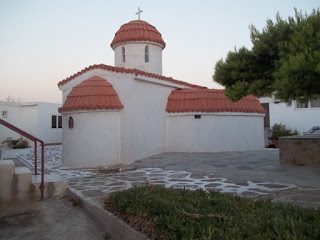Anglican Women Bishops: A view from the Orthodox Church

The recent announcement that the Sarah Mullally DBE ( right ) had been nominated to be the new Anglican Bishop of London caused quite a stir, but it was only to be expected considering that the first women priests were ordained in the Church of England over twenty years ago and the first woman bishop was consecrated in January 2015. How does this concern us? We are not interested in doing a 'hatchet job' on the Church of England in this article. We are just trying to explain why the Orthodox Church only ordains men to be priests or bishops. We will also briefly consider some of the reasons why the Church of England has found itself in this situation so we can avoid this faulty reasoning in our everyday lives. Our question is therefore: ‘Why does the Orthodox Church only ordain men?’ rather than: ‘Why does the Orthodox Church not ordain women?' The answer to our question is found in the Tradition of the Church. The Early Church only ordained men to the priestho


